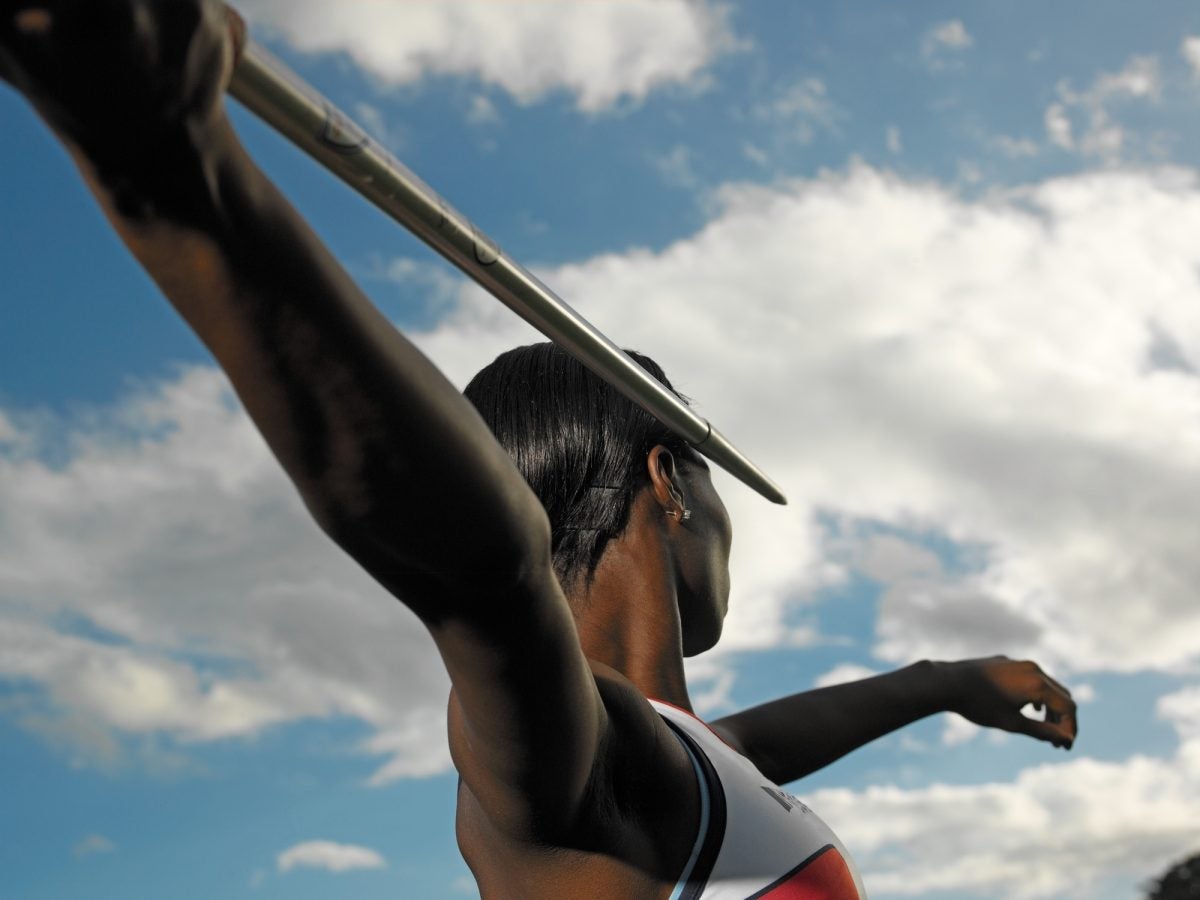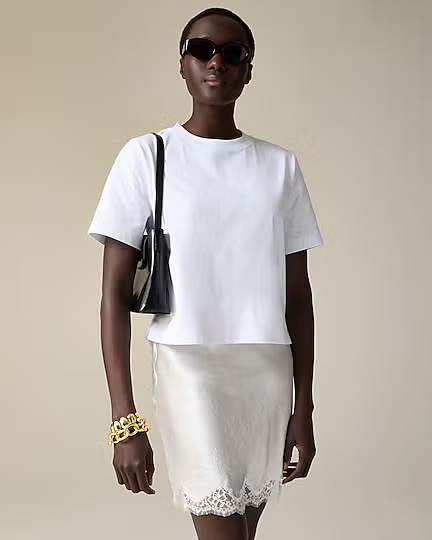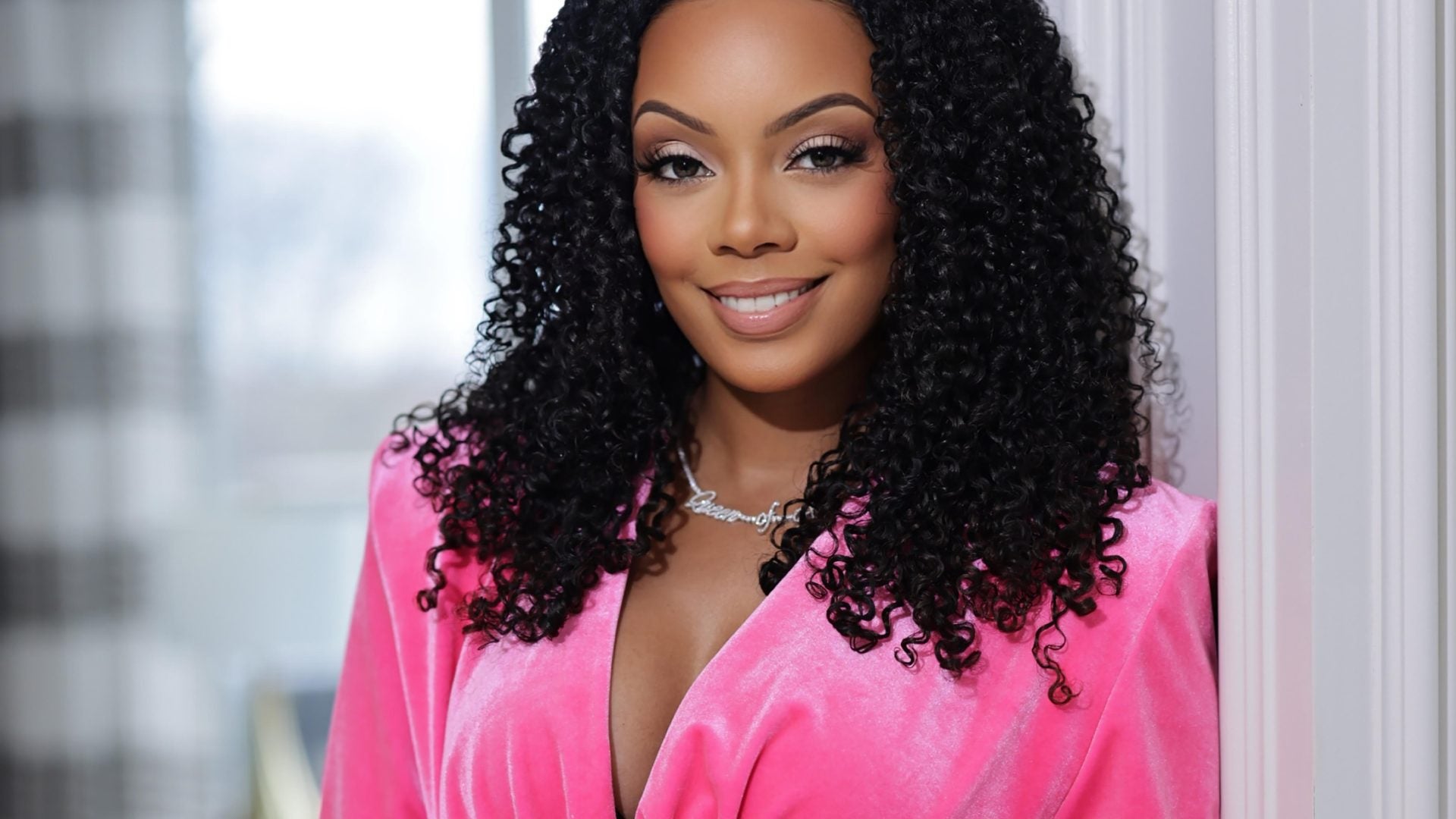
Despite his best efforts, Anthony Hollingsworth wasn’t getting anywhere.
The seasoned creative specialist had been trying for two years to connect with brands to sponsor a country with athletes that qualified to compete in the 2024 Paris Olympics. As a passion project, in 2022 he began volunteering his time to connect the dots. By day, he works at a top sports marketing and talent management company with a client portfolio that includes Gatorade, Nike, Jordan, and House Of Hoops among others. He’s led major campaigns for some of the biggest in athletics, and yet, he couldn’t seem to break through to companies that would make perfect sense to align with.
The reason? The Olympic athletes were from St. Vincent and The Grenadines, a low-profile Caribbean country with 66% African descent.
“It’s really tough for smaller countries to get brand support,” Hollingsworth tells ESSENCE. “That’s what I was doing for the last two years. It’s been a two-year process and many of these companies start planning three to four years out. But still, it’s nothing to them to give away four or five uniforms, but they’re so protective of their brands. They really don’t want to help.”
He says he reached out to Nike, New Balance, and Adidas, among other leading athletics retailers to no avail. He says that although really were receptive to the cause and believed in his initiative, the companies weren’t willing to sign on.
“I was just like, that sucks,” Hollingsworth says. “So, I had to go another route.”
He said he went to smaller upstart brands and partnered them up with the St. Vincent And The Grenadine’s Olympic Committee. “I was just like, who can benefit in the same way as these countries rise? They can rise, too.”
In the end it worked out, and he was able to secure funding the redesign of the country’s Olympic logo, marketing, and housing and flights for the athletes.But his story reflects that of other Black athletes from small countries that lack financial support and visibility on their journey to the Olympics.
Dr. Juliette Nelson and her boutique luxury eyewear brand Nurilens found herself in a similar situation, when in lieu of securing any major sponsorships for team Haiti, she donated 25 pairs of glasses to Haitian athletes competing in the Olympics this year.

The partnership is one of few for team Haiti according to Gerald Fong, a member of the Haitian Olympic Committee.
“Our participating in the Olympics is an inspiration for the country, for the young people, actually, for the whole nation, because we are going through a special situation of violence,” Fong tells ESSENCE. “All those things that you know already, and people, they’ve been talking about that for so long. So it’s a sign, it’s a message and inspiration for the people. To have this kind of corporate cooperation with Nurilens is especially wonderful.”
Nelson says she was compelled to support the team since sponsorship resources aren’t as plentiful for Haitian athletes as they are for US Olympic hopefuls.
“Team Haiti, no matter what the sport, they deserve that support as well,” Nelson says. “And so our goal is to grow with Team Haiti and support them in any way that we can in the near future and beyond.”
26.5% of high-performance American athletes earn less than $15,000 a year, “Passing the Torch” by the Commission on the State of the U.S. Olympics & Paralympics, and another 10% earn between $15,000-$25,000. Haitian athletes are likely to receive even less than that.
Ally, one of the country’s largest online banks, has supported unsponsored athletes in 2021 with the understanding of how critical financial-backing can be for aspiring Olympic hopefuls.
“Depending on the sport, it can cost athletes tens of thousands of dollars or more just to train and compete, yet they don’t give up,” Jennifer Brockington, Executive Director of Advertising, Integrated Media Strategy and Content, Ally. “Our campaign for The Unsponsored was dedicated to the thousands of high-performing athletes who deserve the support to spend on whatever matters most them, to pursue their dreams and continue to do what they love.”
She adds: “Ally did this to highlight the reality that most of the world’s best athletes often train, sacrifice, and compete with little to no financial support in an arena that requires a lot of it. So many unsponsored athletes balance the grit and hustle of their training and competitions with multiple jobs, taking care of family, and making daily sacrifices just to pay for equipment, competition fees, coaches, and basic life necessities.”
Brockington explained #TheUnsponsored campaign consisted of a series of UGC from multiple unsponsored athletes across multiple platforms, as well as 30- and 60-second film spots to highlight the journey of three unsponsored athletes’. Ally also split $250,000 between a group of more than 20 unsponsored athletes.
Ronny Oppong, a creative director for a CPG-based company launched by a renowned Olympic athlete explains that although the progress is slow, brands are starting to recognize the value in supporting Black athletes.
“I think it’s beautiful to see this increase of the diaspora and the Black presence here at the Olympics,” he tells ESSENCE. “I think it’s powerful.”
To his point, many Gen Z athletes with social media savvy has leverage their digital communities to capture and leverage audiences to secure major deals.
As ESPN points out, the 2024 Olympics “fully entered its influencer era”, using engaging posts in hopes of building fanfare once the trials are over. Black athletes in particular, like gymnast Fred Richard are keeping social media users captive with behind-the-scenes looks at the happenings within the Olympic Village.







Oppong says it’s a good thing.
“We’re fortifying partnerships, and then we’re creating new and discovering new partnerships as well,” he tells ESSENCE. “I feel like brands are starting to catch up. I almost want to say we’re going back to a time where we can truly invest and show lifestyle alignment of athletes and how that connects to consumers and subsequently matriculates into bottom line dollars.”
He adds: The athletes stories are being told and their works are being displayed on many, many different platforms. So, yeah, it takes a team. And so it’s really dope to understand that we are all collectively winners, and this is a winning team, and we have many, many new highs to achieve.”






